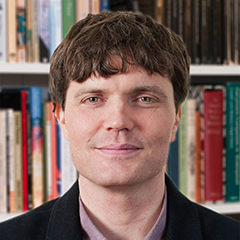You are not currently logged in. Please create an account or log in to view the full course.
Historical Context
- About
- Transcript
- Cite
Theories of Representation
In this course, Professor Andrew Blick (KCL) explores the theory and practice of representation in modern democracies. We begin by exploring the origins of representation in politics. Then, in the second lecture, we contrast representative democracy with direct or participative democracy as represented by recent referendums such as the EU referendum of 2016. In the third lecture, we explore two different theories of representation: delegate and Burkean. In the fourth lecture, we then consider the role of parties, elections, and mandates in the UK’s modern representative democracy, emphasising in particular the twin forces of individual judgement and party allegiance in shaping how constituents’ interests are represented in Parliament. In the fifth lecture, we ask who representatives are and what this tells us about the nature and quality of representation in Parliament. To answer this question, we explore two forms of representation: descriptive and substantive. Then, in the sixth and final lecture, we tie together the various elements of representation we have discussed thus far in the specific context of the UK Parliament.
Historical Context
In this first lecture we explore the origins of representation in politics. This discussion takes us from medieval Europe to the French Revolution, and eventually lands us at our modern system of elections. We consider both the theoretical underpinnings of representation, in which elite men often acted as representatives of the wider social body and brought grievances to the given monarch, and the more tangible form of representation that exists in modern representative democracies. This lecture also involves a discussion of how the institution of Parliament developed over time.
Cite this Lecture
APA style
Blick, A. (2022, January 18). Theories of Representation - Historical Context [Video]. MASSOLIT. https://massolit.io/courses/theories-of-representation
MLA style
Blick, A. "Theories of Representation – Historical Context." MASSOLIT, uploaded by MASSOLIT, 18 Jan 2022, https://massolit.io/courses/theories-of-representation

